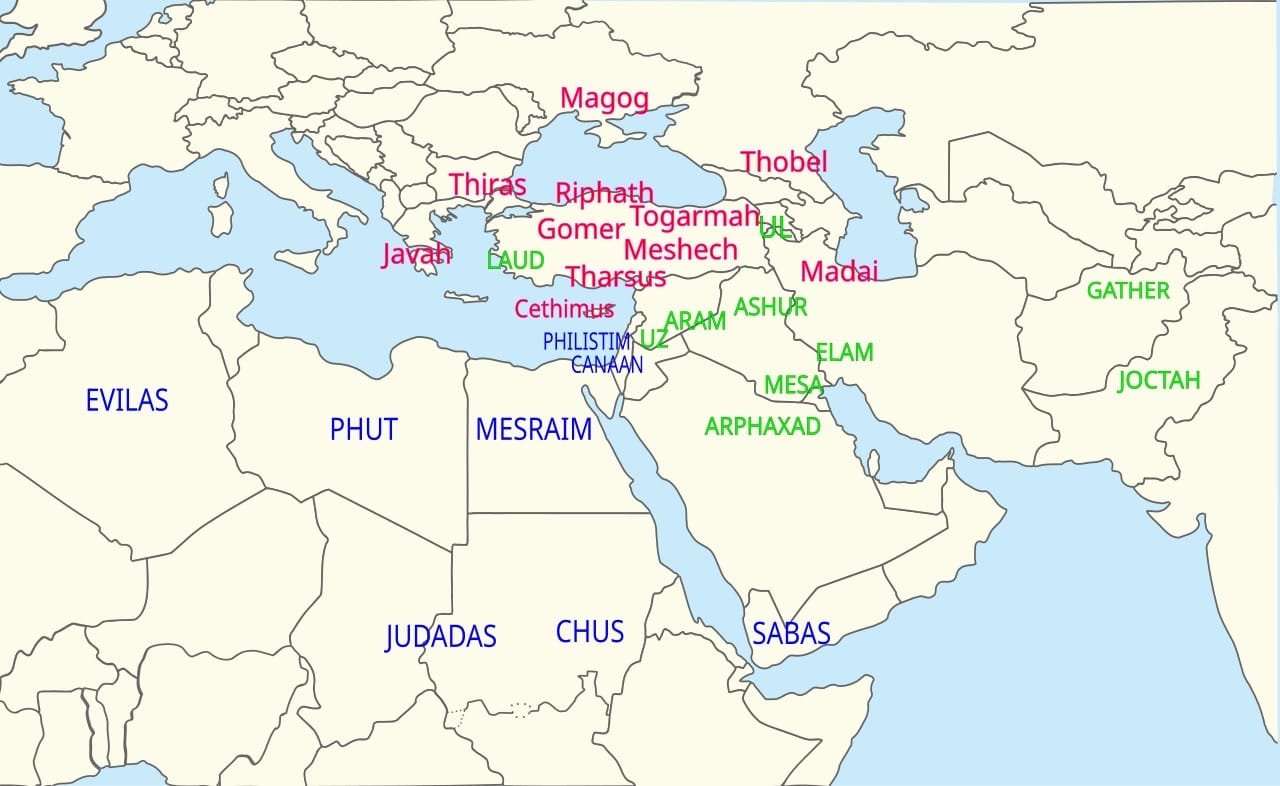Seven days you shall eat unleavened bread. On the first day you shall remove leaven out of your houses, for if anyone eats what is leavened, from the first day until the seventh day, that person shall be cut off from Israel.
– Exodus 12:15 (ESV)
Chametz (חמץ)
Strong’s 2556 & 2557:
Hebrew word for that which is leavened… ferment, (figuratively) extortion — leaven, leavened (bread).
Chametz is the hebrew word for something leavened (“what is leavened” in Exodus 12:15) or more specifically: bread made with yeast. While the word is spelled out with a ch in english it is is pronounced more like hametz… The Hebrew letter chet (translated to H or CH in english) is pronounced like kh or a breathed out K… and often transliterated as ch, however in English the sound that the ch makes is not equivalent… in Hebrew it is just one letter form: ח
Chet or Het is the 8th letter of Hebrew alphabet (aleph-bet).
The English language simply does not have a similar sound for the Hebrew letter chet so in English when attempting to spell out or transliterate Hebrew words it is mostly spelled with just an h and the c is commonly dropped… such is the case for chametz and also for one of Noah’s sons ‘Ham’ who is not really ‘Ham’ but rather… ‘Cham’ 😳… Cham?
In nearly all English Bibles, proper names that were originally in hebrew or greek are typically either transliterated (made to sound similar), translated (matching word meanings) and/or anglicized (changed to something relevant to the time and culture) thus the singular hebrew word chametz becomes ‘leavened bread’ in English, and conversely ‘unleavened bread’ in english is also one word in hebrew: matsah.
Cham (חמ)
Strong’s 2526: a son of Noah, also his desc., A name for Egyptians and the land of Egypt (“The land of Cham”)
Alfred Jones (Dictionary of Old Testament Proper Names) confidently derives the meaning of “Cham” from the verb חמם (hamam), meaning “to be hot”, and renders it “Heat” or “Black”. Since the 17th century many have suggested that the Hebrew name “Cham” likely means “burnt”, “black” or “hot”.
It wasn’t long after Noah, his family and their floating barge of pets exited the ark in the foothills of Mount Arrrat, the 3 sons went off in different directions to claim their own land, start their own societies and re-populate the recently destroyed earth.
Genesis 9:18-19 (Yah Scriptures)
18. And the sons of Noah who went out of the ark were Shem and Ham and Yepheth. And Ham was the father of Kena’an. 19. These three were the sons of Noah, and all the earth was overspread (repopulated) from them.
Where did Noah’s sons go? It appears that Shem settled in the current region of Iraq/Iran (UR of the Chaldees/Kasdim) and South-Eastward while Japheth inhabited modern day Turkey and regions to the north surrounding the Black sea. There is little doubt that Cham ended up in Northern Africa, specifically the region we now know as Egypt.
But how do we know this?…
Genesis 10:6 (Yah Scriptures)
And the sons of Ham: Kush, and Mitsrayim, and Put, and Kena’an.
Genesis 10:13 (Yah Scriptures)
And Mitsrayim brought forth Ludim, and Anamim, and Lehabim, and Naphtuhim,
Oddly enough the name Mitsrayim is actually the original Hebrew word and is never translated in English bibles. The Hebrew word for Egypt is…. Mitsrayim. 😳 Cham’s son bears the same name as the Hebrew name for the land now known as Egypt.
Many centuries later the ancient Egyptians would actually refer to the land as Khem/khemia and the people as khemites… which is strangely similar to Cham/Chamites.
The oldest known native name of Egypt is KM.T (“Khemet”) meaning “black”, and refers to the fertile black soils of the Nile flood plains. “Khem” is thus likely to be the Egyptian equivalent of the Hebrew word “Cham.” Even to this day ancient Egyptians are considered ‘Khemites’ and the study of ancient Egypt is known as ‘Khemitology’.
From wiki: Since the 17th century, a number of suggestions have been made that relate the name Ham to a Hebrew word for “burnt”, “black” or “hot”, to the Egyptian word ḥm for “servant” or the word ḥm for “majesty” or the Egyptian word kmt for “Egypt”.
Today Egypt is under Arabian authority and in Arabic it is known as Misr… directly derived from ancient Hebrew and arabic.
From wiki: The English name “Egypt” is derived from the Ancient Greek “Aígyptos” (“Αἴγυπτος”), via Middle French “Egypte” and Latin “Aegyptus.
In the Bible we see there is a land area actually directly identified with Ham/Cham…
Genesis 14:5 (Yah Scriptures)
And in the fourteenth year Kedorla’omer and the sovereigns that were with him came and smote the Repha’im in Ashteroth Qarnayim, and the Zuzim in Ham, and the Eymites in Shaweh Qiryathayim,
In Psalms we see Egypt equated with the Land of Ham and Egyptians referred to as Hamites…
Psalm 78:51 (Yah Scriptures)
And He smote all the first-born in Mitsrayim, The first-fruits of strength in the tents of Ham,
Psalm 105:23 (Yah Scriptures)
Then Yisra’ĕl came to Mitsrayim, And Ya’aqoḇ sojourned in the land of Ham.
Psalm 105:27 (Yah Scriptures)
They put among them the matters of His signs, And wonders in the land of Ham.
Psalm 106:22 (Yah Scriptures)
Of wonders in the land of Ham, Of fear by the Sea of Reeds (Red Sea).
Cham… Chametz!
Is there any connection between Cham and chametz (leavened bread) and if so, what is it?
Exodus 12:14-19 (Yah Scriptures)
14. ‘And this day shall become to you a remembrance. And you shall observe it as a Festival to YHWH throughout your generations – observe it as a Festival, an everlasting Law. 15. ‘Seven days you shall eat unleavened bread (matsah). Indeed on the first day you [shall] cause leaven to cease from your houses. For whoever eats leavened bread (chametz) from the first day until the seventh day, that being shall be cut off from Yisra’el. 16. ‘And on the first day is a qodesh (holy/set-apart) gathering, and on the seventh day you [will also] have a qodesh gathering. No work at all is done on them, only that which is eaten by every being, that alone is prepared by you. 17. ‘And you shall guard/observe the Matstsoth (days of unleavened bread), for on this same day I brought your divisions out of the land of Mitsrayim (Egypt). And you shall guard this day throughout your generations, an everlasting Law. 18. ‘In the first [moon/month], on the fourteenth day of the month, in the evening, you shall eat unleavened bread (matsah) until the twenty-first day of the month in the evening. 19 ‘For seven days no leaven is to be found in your houses, for if anyone eats what is leavened (chametz), that same being shall be cut off from the congregation of Yisra’el, whether sojourner or native of the land.
Exodus 13:6-7 (Yah Scriptures)
6. “Seven days you eat unleavened bread (matsah), and on the seventh day is a Festival to YHWH. 7. “Unleavened bread (matsah) is to be eaten the seven days, and whatever is leavened (chametz) is not to be seen with you, and leaven is not to be seen with you within all your border.
Deuteronomy 16:1-4 (Yah Scriptures)
1. “Guard the month of Abib, and perform the Pesaḥ to YHWH your Elohim, for in the month of Abib YHWH your Elohim brought you out of Mitsrayim by night. 2. “And you shall slaughter the Pesah (Passover Lamb) to YHWH your Elohim, from the flock and the herd, in the place where YHWH chooses to put His Name. 3. “Eat no leavened bread (chametz) with it. For seven days you eat unleavened bread (matsah) with it, bread of affliction, because you came out of the land of Mitsrayim in haste – so that you remember the day in which you came out of the land of Mitsrayim, all the days of your life. 4. “And no leaven should be seen with you in all your border for seven days, neither should the meat which you slaughter in the evening on the first day stay all night until morning.
Leading up to the first Passover, YHWH commanded the Israelites to eliminate and remove all ‘chametz’ (leavened/yeasted bread/food) for 7 days. While there was a very real and immediate reason for eating unleavened bread while traveling (since there was no time to let bread rise); why did YHWH command it? and why specifically for 7 days?
Unfortunately we see very early on, following the exodus from Egypt, that the people were already complaining and wishing they were back in Egypt where at least they had food/bread and water. Even though conditions in Egypt were terrible and oppressive, the people were ready give up and to go back already. They preferred to die at the hands of the Egyptians, in captivity, rather than “suffer in the wilderness” on their own, trusting in YHWH.
Living under oppression and control can in fact lead to a condition known as “learned helplessness”. The Israelites had become acustomed to Egypt and all the “comforts” they had there, even if they were simultaneously being abused and taken advantage of. The life they had in Egypt was the only life they knew and after 400 years, they had become dependent upon Egypt… rather than YHWH. YHWH was desiring to both free them and to shift their dependence off of Egypt and onto Him.
So why eliminate leaven/yeast for 7 days, every year, forever? Much like the 7 day cleansing periods prescribed for various conditions of uncleanness as outlined in Leviticus, YHWH commanded there to be a 7 day period of cleansing from Chametz (or rather, Egypt). When we fast or obstain from things we normally might enjoy, we can often experience “withdrawals”. These are unpleasant symptoms of addictions or negative habits that might be influencing our behavior to some degree. Almost anything can become habitual or addicting but often we may not realize it until we decide to change or are forced to obstain from it. Try fasting from all forms of food for a full day and you will quickly realize this.
The annual removal of chametz was certainly meant to be a reminder of where they (we) came from and what YHWH did historically… freeing us/them from bondage… It was also meant to be a symbolic reminder of all the earthly/fleshly things (“leaven”) that can sneak into our lives today and begin to influence us…. today.
YHWH commands us to not only commemorate the miraculous removal of his people (us) from Egypt (The land of Cham/Khem) but also He commands us to remove the Cham(etz), “Egypt” (the darkness) from our lives for 7 days every year.
What YHWH is actually asking us to do is to remove the “Egypt” from our lives… remove the bondage… remove the babylon… remove the sin… remove the dependence upon men and put back on YHWH.
YHWH delivered the people from bondage and oppression in Egypt (the land of Cham) by His own mighty hand… during the 7 day feast of unleavened bread He is simply asking us to spend these 7 days cleansing ourselves from chametz… our own “Egypt”… remember where we have come from, praise YHWH for delivering us and now recognize any current bondage and dependencies we may have become comfortable with and indebted to and then refocus, casting our cares on Him… looking to Him, the Author and Finisher of our faith.
Matthew 16:6
“Watch out,” Jesus said to them, “beware of the yeast (leaven) of the Pharisees and Sadducees”…
Matthew 16:11
“How could you not understand that I was NOT speaking to you about bread?”
1 Corinthians 5:6
6. “Your boasting is not good, Don’t you know that a little yeast/leaven affects the whole batch of dough? 7. Clean out the old yeast/leaven so that you may be a new batch of dough – you are in fact without yeast/leaven. For Christ, our Passover Lamb, has been sacrificed. 8. So then, let us celebrate the festival, not with the old yeast/leaven, the yeast/leaven of vice and evil, but with the bread without yeast/leaven, the bread of sincerity and truth.
Galations 5:7-10
7. You were running well; who prevented you from obeying the truth? 8. This persuasion does not come from the one who calls you! A little yeast/leaven makes the whole batch of dough rise. I am confident in the Lord that you will accept no other view. But the one who is confusing you will pay the penalty, whoever he may be.


